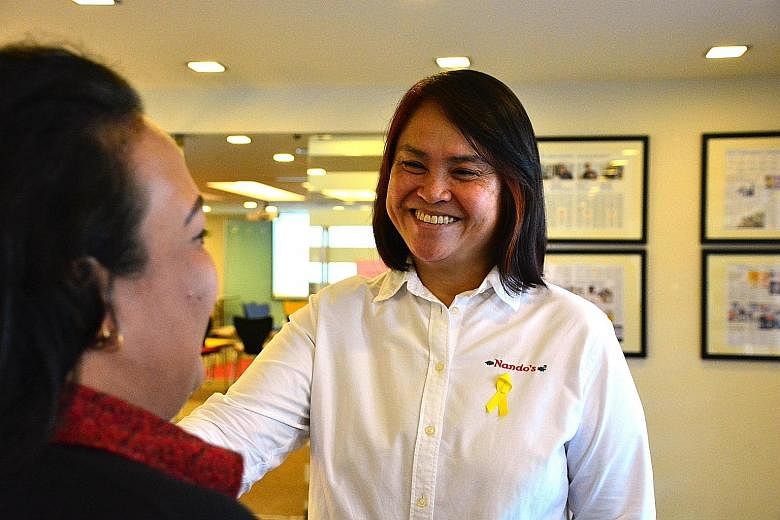Many former offenders are disciplined, hard-working and have shown themselves to be an asset in the workplace.
That is why restaurant chain Nando's Chickenland Singapore has hired more than 200 former offenders since 2012, said its chief executive officer June Koh.
Ms Koh's support for them is now being shared by a growing pool of employers, based on latest prison annual figures released yesterday.
Some 350 new employers started working with the Singapore Corporation of Rehabilitative Enterprises (Score) last year to hire former offenders. There were 5,093 such bosses last year, a 7.3 per cent increase from the 4,745 in 2015. These companies cut across sectors such as food and beverage, logistics and manufacturing.
Said Ms Koh: "Many ex-offenders have since proven to be more disciplined than others. They are an asset to the company and they deserve a second chance."
Some, like 28-year-old Moon (not her real name), were able to secure a job before their release.
While serving a 15-month sentence in a drug rehabilitation centre, she took courses in computer skills and communication, before scoring a job at Nando's.
She was among the 96 per cent of 2,061 inmates referred to Score last year who successfully secured jobs while still serving their sentences, said the Singapore Prison Service (SPS). This figure has been "consistently high" over the last three years, with 96 per cent in 2014 and 95 per cent in 2015.
Ms Moon started work as a member of the service crew four months before her release in June last year, and recently took on the role of buddy trainer to guide new staff. "Everyone at work accepted me for who I am. They were very understanding and if I have any personal problems - not just about work - I could talk to them," said Ms Moon, who hopes to be an assistant manager in future.
The SPS said that by enhancing their employability, rehabilitated inmates do not go back to their old ways. Figures show that in 2015, about 84 per cent of former inmates stayed on the job for at least three months, while 70 per cent were gainfully employed for at least six months.
Many inmates also undergo training aligned to the national Workforce Skills Qualifications framework. Last year, 5,131 inmates enrolled in 22,945 training places. This was fewer than the 5,137 inmates who enrolled in 26,660 training places in 2015, although Score said this was due to renovation works at one of the training facilities last year.
Score's senior assistant director of retention support Arputhasamy Nathan said the jobs have to be suitable for former offenders, and employers should also guide them in their work performance and career progression. He said: "If the ex-offender stays on the job, he can become more responsible towards himself and others, and that helps to lower recidivism."
Community-based programmes also reaped success last year. They include the Work Release Scheme, which grants leave to inmates at the tail end of their sentence for employment.


